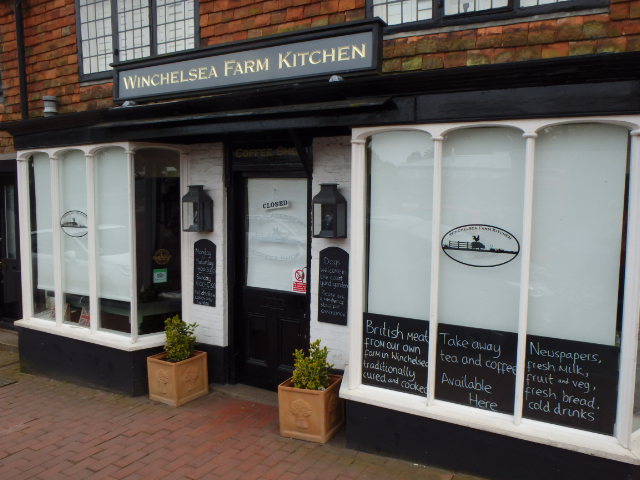Last year, Winchelsea found itself without a butcher’s shop for the first time in 700 years. Now, for the first time for almost a century, the town is without a tea shop. The tea room at the back of Winchelsea Farm Kitchen has been closed. Residents are bemused that such a popular visitor destination as their town no longer has somewhere to offer a cup of tea or coffee.
In 2000, Winchelsea was able to boast one of the best tea shops in the country, in the form of the award-winning Tea Tree. This was established by the energetic and enterprising Rodney and Wendy Harris, who built up a huge following of regulars.
Once they sold, the business began a slow decline, as subsequent owners meddled with the Harris’ successful formulae and also cut back opening hours. By 2007, turnover had almost halved and the business was struggling just to break even. It closed that year and the premises was bought by Winchelsea Farm Foods, the trading subsidiary of the environmental charity set up by retired Icklesham hedge fund manager, Stephen Rumsey, and his wife. The former post office next door was also purchased and there were plans to set up a 120-seat restaurant in the combined premises under celebrity chef Richard Phillips.
When that plan was dropped, a tea room was reinstated at the back of the premises, called Winchelsea Farm Kitchen. The front was given over to a delicatessen, wine cave and butcher run by Winchelsea’s nationally famous butcher Jamie Wickens. Jamie, the delicatessen and the wine cave have long gone. And the butcher has been reduced to a cold cabinet of prepacked meat.
Residents contend that the tea room was an afterthought and never had the scale or visibility necessary to be financially viable. The policy of reducing opening hours also continued. In particular, it was closed on Sunday, even Mothering and Easter Sundays, peak days for most tea shops. Last year, opening hours were cut back to just three days, Thursday to Saturday. At one point, the tea room even switched to paper cups.
The final blow has followed the publication of the abbreviated accounts of Winchelsea Farm Foods for the financial year to April 2014. The annual loss, which was about £950,000 in 2012/13, had been reduced in 2013/14 but only to £772,190. This brings the cumulative loss since 2007 for the shops owned by Winchelsea Farm Foods to £4,545,621. And the auditors stated once again that they would have declared the company insolvent but for the financial support provided by the parent charity, which is relying on a personal guarantee from Steve Rumsey.
The latest closures mean that two more staff have been made redundant by Winchelsea Farm Foods. This adds to the long series of job losses that last year saw the departure of Ian Hunter, the much respected manager of the nature reserve that is at the core of the environmental charity that owns Winchelsea Farm Foods.
The extra space in Winchelsea Farm Kitchen is to be used to house the postal service, once open for five-and-a-half days, now limited to two hours twice a week. This will be moved from the former Little Shop building, which is to become an art gallery.
A notice on the Farm Kitchen’s window sought to reassure residents that there is no intention to close the shop. It asked for their support and promised to do better, talking of turning the business into “a traditional village shop where everyday essentials can be purchased”, prompting more than one resident to ask what the shop was supposed to have been doing before.
For visitors looking for a cup of tea, there is a glimmer of hope in that the New Inn is opening for coffee at 9am each morning. The pub also has plans to open a tea room in the stable block at the rear, when that is eventually refurbished.
The end of the tea room in Winchelsea leaves Winchelsea Farm Foods with just one active premises in the town. Their three other buildings in Winchelsea are empty or only occasionally used, not counting the long unoccupied Greyfriars. In Rye, other buildings owned by Winchelsea Farm Foods also remain empty, namely the former Ashbee & Son and the building next door, which had been converted to a delicatessen before closure.



